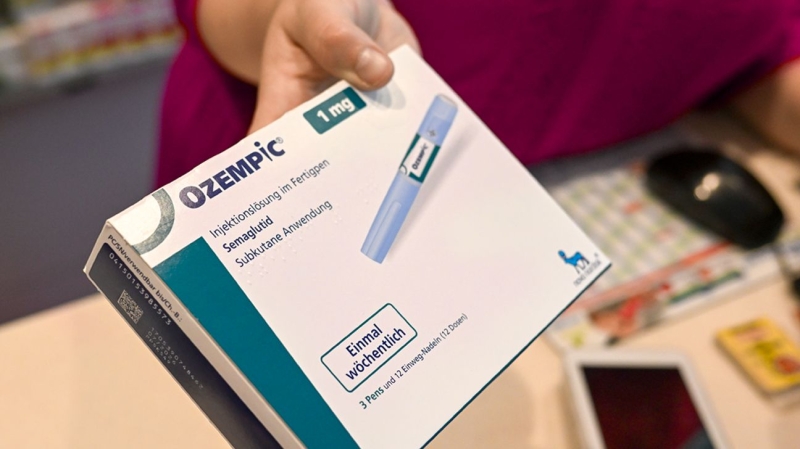
- New research has linked drinking more than four cups of coffee a day with a 37% higher risk of stroke.
- Frequent consumption of carbonated beverages was also linked with increased stroke risk by 22% and fruit juice and drinks by 37%.
- However, consuming three to four cups of tea a day lowered the overall risk of stroke by 27% to 29%, though adding milk may offset these benefits.
What you eat and drink can have a big impact on your blood vessels when it comes to cardiovascular health.
Two new studies provide insight into how to make healthy beverage choices, with tea and water appearing to lead the pack ahead of coffee and soda — at least when it comes to the risk of stroke.
Frequent consumption of carbonated beverages and fruit juice increased the risk of stroke, one analysis found. Another showed that drinking more than four cups of coffee a day also increased the risk of stroke, while tea lowered the risk.
“As a doctor and as someone who has researched the risk of stroke, we would encourage people to avoid or minimize their consumption of fizzy and fruit drinks and to consider switching to water instead,” Andrew Smyth, PhD, Professor of Clinical Epidemiology at the University of Galway in Ireland, who was the lead researcher for both studies, said in a release.
Stroke is the leading cause of death in the United States
A stroke occurs when a blood vessel that carries blood to the brain is either blocked by a clot or ruptures. As a result, part of the brain can’t get the blood and oxygen it needs, which leads to brain cells dying.
In the United States, stroke is a leading cause of death for Americans. Each year, more than 795,000 Americans have a stroke, according to the Centers for Disease Control and Prevention.
The findings for both studies come from an analysis of data from the INTERSTROKE research project. They were published in the Journal of Stroke and the International Journal of Stroke.
The project involved almost 27,000 people in 27 countries, including almost 13,500 people who experienced their first stroke.
The link between fruit juice, soda, and stroke risk
In one analysis, researchers found that drinking up to one carbonated beverage a day — either sugar-sweetened or artificially sweetened — was linked to a 22% increased overall risk of stroke. The risk increased sharply for people who consumed two or more of these drinks a day.
Consuming up to one fruit juice or drink a day was linked to a 37% increased risk of a stroke. For two fruit juices or drinks a day, this stroke risk tripled.
Females had the highest risk of stroke linked to fruit juice or drinks, researchers found.
They also pointed out that while fruit juice can contain compounds such as polyphenols that offer heart-related benefits, “some fruit drinks contain added sweeteners or preservatives, which may offset these potential benefits.”
In addition, this analysis showed that drinking seven or more cups of water a day was linked to a lower overall risk of stroke, as well as a lower risk of stroke due to a clot or bleeding.
The link between coffee, tea, and stroke risk
The other analysis showed that drinking more than four cups of coffee a day was linked to a 37% higher overall risk of stroke and a 32% higher risk of stroke due to a clot. There was no increased stroke risk for lower levels of coffee consumption.
In contrast, drinking more than four cups of tea a day was linked to a 19% lower risk of all types of stroke and stroke due to a clot, as well as a 22% lower risk of stroke due to bleeding.
The benefits varied slightly for different types of tea.
Drinking three to four cups a day of black tea — such as Earl Grey or Breakfast teas — was linked to a 29% overall lower risk of stroke.
Green tea, consumed three to four cups a day, was linked to a 27% lower overall risk of stroke. Other types of tea were linked to a smaller overall reduced risk of stroke.
These stroke-related benefits of tea went away when people added milk, researchers found.
The study did differentiate between cow’s milk and milk alternatives such as soy, oat, or almond beverages. However, Smyth told Healthline that because the study included people in regions with a high prevalence of lactose tolerance, some participants likely used non-dairy milks in their coffee or tea.
New studies are limited, but water and tea remain healthier choices
The studies are observational and cannot prove that drinking coffee, tea, or soda causes a lower or higher risk of stroke.
In addition, “these are case-control studies using questionnaires, which can be prone to bias and have other limitations,” said José Morales, MD, vascular neurologist and neuro-interventional surgeon at Providence Saint John’s Health Center in Santa Monica, Calif.
“Nevertheless, there is a basis from prior independent research that is in agreement with these studies to support the overall healthiness of water consumption over any other beverage type,” he told Healthline.
Michelle Routhenstein, MS, RD, a preventive cardiology dietitian at EntirelyNourished, agrees.
Overall, “these studies highlight the importance of choosing water and tea as your primary beverages to help reduce your risk of stroke,” said Routhenstein.
Neither Morales nor Routhenstein were involved in the studies.
There is also another upside to this research.
“For those who thrive on caffeine, it is reassuring that tea and moderate coffee (fewer than 4 cups a day) consumption are not associated with an increased risk of stroke,” said Morales.
“Unfortunately, drinking soda increases your risk of stroke, and daily consumption of sugary drinks (such as soda, fruit juice, etc.) may increase your risk of a brain bleed,” he said.
Whatever you choose to drink, balance is key.
“Even drinking too much water can lead to health issues,” said Morales. Similarly, “the occasional fruit juice may not impact your stroke risk and can be a source of essential vitamins. And if you’re a coffee person, avoid drinking more than four cups of it per day.”
Takeaway
In an analysis of data from a large, multi-country study, researchers found that drinking up to one carbonated beverage a day increased the overall risk of stroke by 22%. The risk increased sharply for higher levels of consumption.
Drinking up to one fruit juice or drink a day was linked to a 37% increased risk of stroke. The stroke risk tripled for the consumption of two fruit juices or drinks per day.
A separate analysis showed that drinking more than four cups of coffee a day was linked to a 37% higher overall risk of stroke. There was no increased stroke risk at lower levels of coffee consumption.
Drinking more than four cups of tea a day lowered the overall risk of stroke by 19%.
Drinking three to four cups of black tea a day reduced the stroke risk by 29%, compared to three to four cups of green tea a day, which reduced the risk by 27%.





